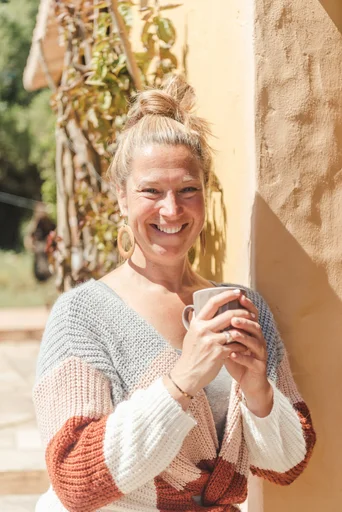Yoga for Scoliosis: How Your Practice Can Create Symmetry in the Body

Welcome to the World of Yoga for Scoliosis
Living with scoliosis can be challenging, but yoga for scoliosis has been a game-changer for many, including myself. As someone who has personally experienced the transformative power of yoga, I can attest to its profound impact on creating symmetry in the body and alleviating the physical and emotional challenges associated with scoliosis.
My Personal Journey with Scoliosis
I vividly remember the discomfort and self-consciousness that plagued me due to my scoliosis. The protrusion of my rib cage and the misalignment of my spine were constant sources of frustration. However, everything changed when I discovered yoga. Through consistent practice, I began to notice significant improvements in my posture and a reduction in the protrusion of my rib cage. Yoga became more than just a form of exercise; it became a way of life that brought about both physical and spiritual transformation.
Why Yoga?
Yoga offers a holistic approach to managing scoliosis by focusing on strengthening muscles, improving alignment, and enhancing flexibility. It provides a unique combination of flexibility and core stabilization exercises that are particularly beneficial for individuals with scoliosis. Additionally, yoga can help manage scoliosis-related pain and maintain good posture, making it an invaluable tool in promoting overall well-being.
As we delve deeper into this blog, we will explore how yoga for scoliosis can create symmetry in the body, share real-life success stories, provide tips for starting your yoga journey safely, and introduce effective yoga poses specifically tailored for individuals with scoliosis.
Understanding Scoliosis and Its Impact
Scoliosis is a condition that affects the curvature of the spine, leading to a sideways curvature that can vary in severity. This spinal deviation can cause a range of physical and emotional challenges, impacting various aspects of daily life.
What is Scoliosis?
The Basics
Scoliosis is characterized by an abnormal lateral curvature of the spine, often resembling an "S" or "C" shape when viewed from the back. While some cases of scoliosis are mild and may go unnoticed, others can be more severe and require intervention. The condition can develop at any age, but it most commonly emerges during the growth spurt just before puberty.
How It Affects Your Body
The impact of scoliosis extends beyond the physical appearance of a curved spine. Scientific research findings have highlighted its potential to cause back pain, breathing problems, cosmetic deformities, self-image distortion, reduced vitality, impaired mental health, and diminished quality of life. Furthermore, severe scoliosis has been associated with weakened lung function and respiratory failure in adulthood.
The Emotional and Physical Challenges
Living with scoliosis presents a unique set of emotional and physical challenges for individuals affected by this condition.
My Own Struggles
I vividly recall the emotional distress I experienced due to my scoliosis. It not only affected my physical well-being but also took a toll on my mental health. The negative body image, anxiety about my appearance, and concerns over peer interactions were constant sources of stress.
Common Challenges for Others
Scientific studies have shown that scoliosis can significantly impact psychological well-being through concerns for physical appearance, pain management, lower self-esteem, uncertain prognosis, and worries about social interactions. Additionally, caregivers may experience financial burden, stress, anxiety related to caregiving responsibilities.
Understanding the multifaceted impact of scoliosis is crucial in recognizing the importance of holistic approaches such as yoga in managing this condition effectively.
In the next section, we will delve into how yoga specifically addresses these challenges by creating symmetry in the body and improving overall well-being.
How Yoga Can Help Create Symmetry
Now, let's explore the science behind how yoga for scoliosis can effectively create symmetry in the body and share real-life success stories that highlight its transformative power.
The Science Behind Yoga for Scoliosis
Strengthening Muscles
Yoga offers a unique approach to strengthening muscles, which is particularly beneficial for individuals with scoliosis. Through a series of gentle yet effective poses, yoga targets specific muscle groups surrounding the spine, promoting better support and stability. This targeted muscle strengthening contributes to improved coordination and physical function, ultimately aiding in creating symmetry in the body.
Improving Alignment
One of the remarkable benefits of yoga for scoliosis is its ability to improve alignment. By focusing on postural awareness and mindful movement, yoga helps individuals with scoliosis develop a heightened sense of alignment. This emphasis on alignment not only supports better posture but also aids in elongating the spine and de-rotating the spine and ribs, creating balance and harmony in the body. As a result, individuals experience improved balance, posture, increased respiratory capacity, and deeper relaxation.
Real-Life Success Stories
My Transformation
I vividly recall my personal journey with scoliosis and how yoga played a pivotal role in transforming my life. Through consistent practice tailored to my individual needs, I experienced significant improvements in my overall well-being. Not only did I notice enhanced coordination and physical function, but I also found relief from pain and discomfort associated with scoliosis. The practice of yoga not only created symmetry in my body but also fostered a deep sense of inner peace and well-being.
Others' Experiences
Real-life case studies have demonstrated the remarkable benefits of yoga for individuals with scoliosis. These studies have showcased how personalized yoga therapy can address mind-body constitutions, lifestyle management, dietary needs, and disease pathology to create positive outcomes for those living with scoliosis. Additionally, expert opinions emphasize that yoga can be instrumental in improving posture, elongating the spine, developing tissues around the spine, and promoting overall balance and harmony within the body.
Incorporating these scientific insights into our understanding of yoga for scoliosis allows us to appreciate its potential to create symmetry while enhancing overall well-being.
Starting Your Yoga Journey: Tips and Poses

Now that we understand the transformative potential of yoga for scoliosis, it's essential to approach your yoga journey with a focus on safety and effective poses tailored to address the unique needs of individuals with scoliosis.
Getting Started Safely
Finding the Right Instructor
When embarking on your yoga journey, finding an instructor who understands the nuances of scoliosis is crucial. Sami Ahmed, DPT, a physical therapist at The Centers for Advanced Orthopaedics, emphasizes the importance of finding an instructor who can provide guidance on performing yoga poses properly. Their expertise in addressing the combination of flexibility and core stabilization needed for individuals with scoliosis can significantly enhance your yoga experience.
Listening to Your Body
Jenni Tarma, a Yoga Medicine® therapeutic specialist, highlights the significance of listening to your body when using yoga to manage scoliosis. Due to the uneven distribution of tension in the surrounding tissues caused by the curvature of the spine, it's essential to be mindful of how each pose feels and adjust accordingly. By being attuned to your body's signals, you can tailor your practice to suit your individual needs and promote safe progression in your yoga journey.
Effective Yoga Poses for Scoliosis
Pose 1: Mountain Pose
Mountain Pose is a foundational posture that focuses on grounding and alignment. This pose promotes spinal elongation and encourages symmetrical weight distribution through both feet. By standing tall with arms relaxed by your sides, you can cultivate a sense of stability while improving posture and balance.
Pose 2: Tree Pose
Tree Pose offers an opportunity to enhance balance and strengthen the muscles surrounding the spine. By rooting one foot into the ground while placing the sole of the other foot against the inner thigh or calf, you engage core stabilization while fostering a deep sense of concentration and poise.
Pose 3: Child’s Pose
Child’s Pose provides gentle stretching for the back muscles while promoting relaxation. This restorative posture allows for spinal elongation and encourages deep breathing, offering relief from tension commonly experienced by individuals with scoliosis.
As you embark on your yoga journey, incorporating these effective poses under expert guidance can contribute to creating symmetry in your body while promoting overall well-being.
Wrapping Up
The Journey Ahead
As you embark on your yoga journey for scoliosis, remember that it is a path of continuous growth and self-discovery. Each step you take on the mat brings you closer to creating symmetry in your body and nurturing a sense of inner harmony. Embrace the journey ahead with an open heart and a willingness to explore the transformative power of yoga.
Encouragement and Final Thoughts
The testimonials from individuals who have experienced the positive impact of yoga on scoliosis serve as powerful reminders of the potential for healing and growth. One individual shared how their rib cage protrusion reduced, leading to improved posture and overall happiness. Another person expressed gratitude for discovering new possibilities through yoga despite living with scoliosis for most of their life.
Testimonials:
A practitioner found relief from pain and discomfort associated with scoliosis, experiencing a profound physical and spiritual transformation.
An individual overcame limitations they believed were imposed by their condition, finding new doors of possibility through yoga.
These heartfelt accounts reflect the resilience and optimism that can blossom through dedicated practice. They also underscore the importance of seeking personalized guidance, whether at home or in a studio setting, to tailor your practice to suit your unique needs effectively.
As you continue your journey with yoga for scoliosis, may you find strength in each breath, balance in each pose, and joy in each moment on your mat. Remember that every small adjustment, every mindful movement, and every gentle reminder to breathe can contribute to your well-being.
In closing, I encourage you to embrace the practice of yoga as not just a form of exercise but as a way of life—a source of empowerment, healing, and self-discovery. Let your mat be your magic carpet, guiding you towards creating symmetry in both body and spirit.
With every inhale and exhale, may you find peace within yourself.
This concludes our exploration into the transformative potential of yoga for scoliosis. As we part ways here, know that the journey ahead is filled with endless opportunities for growth, healing, and joy through the practice of yoga.
Namaste.
See Also
Creating Body Symmetry Through Yoga for Scoliosis
Carve Out Room for Your Yoga Journey | Yoga Philosophy: Yoga Sutra 1.2
Spring Equilibrium: A Yin Yoga Sequence for Balance - Yoga Journal
We bring back the importance of initiation into womanhood by Roos-Veerle Krijnen & Ella-June Henrard
Welcome to the Women’s Initiation Retreat by Naked Truth Retreats, a transformative journey into the depths of your True Feminine Nature. This retreat, scheduled from 17th to 24th August 2024 in Portugal, invites you to remember the sacredness and wholeness of your being.
Roos-Veerle Krijnen & Ella-June Henrard



